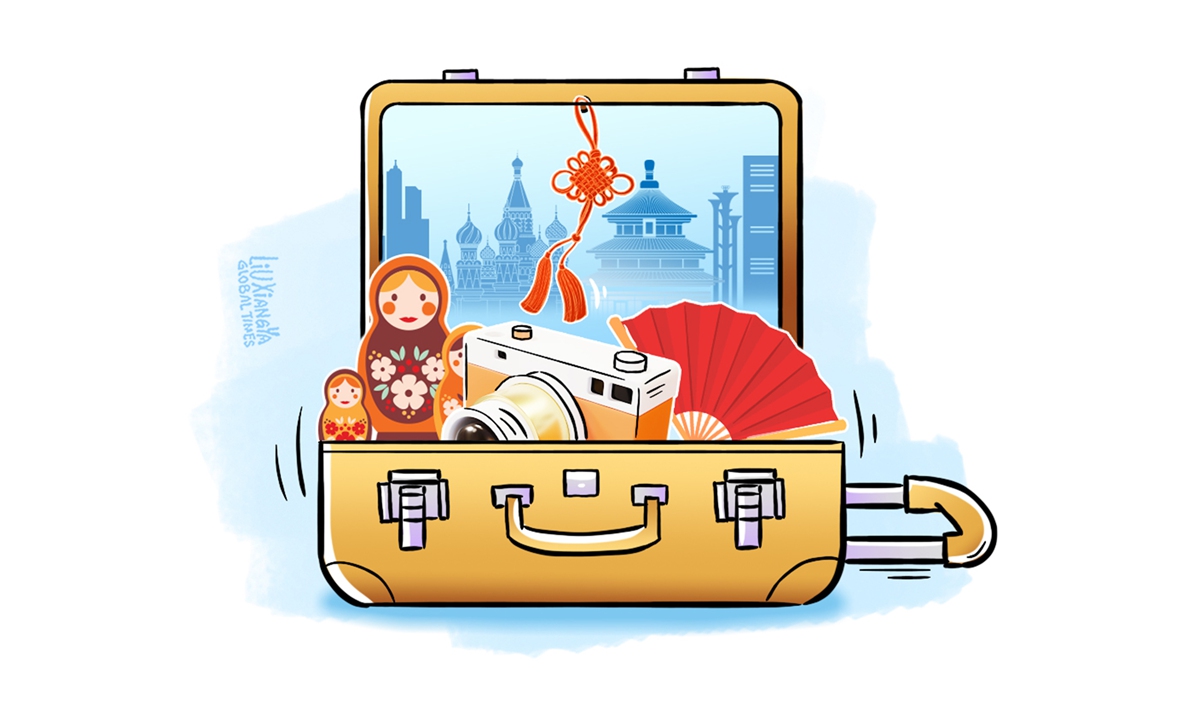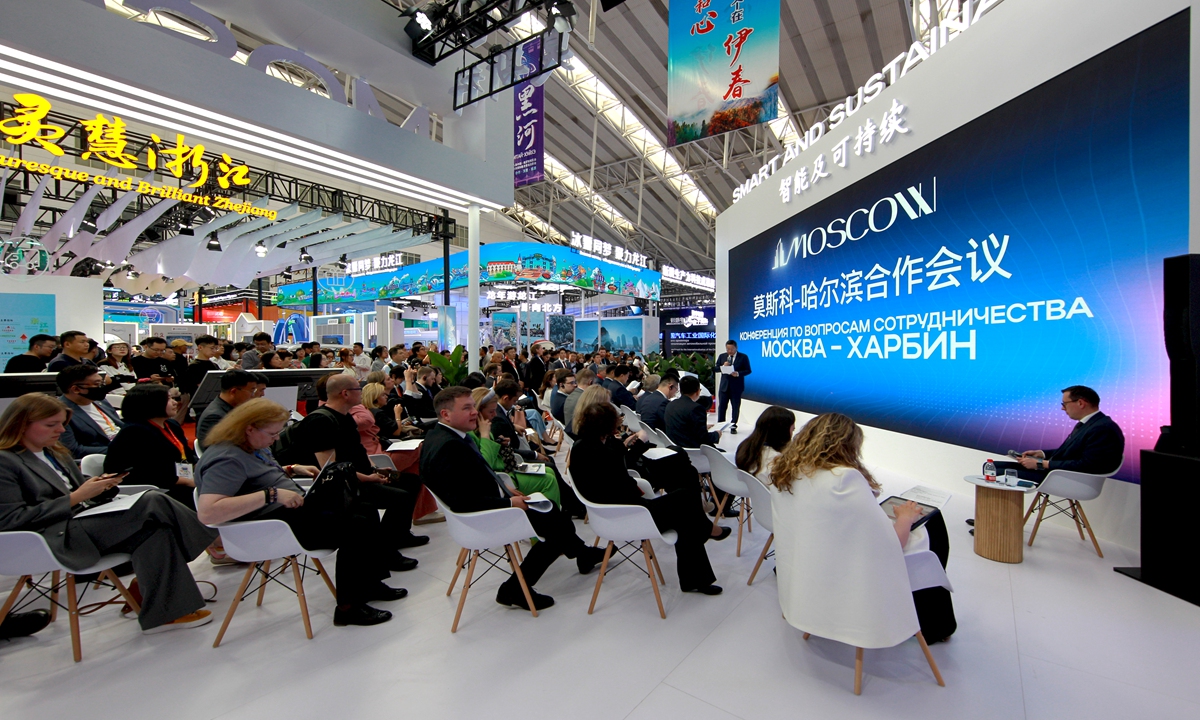LIFE / ATTITUDES
China, Russia boost tourism, cultural ties

Illustration: Liu Xiangya/GT
Many Chinese people are familiar with at least some Russian tourist attractions. The Kremlin, and the Red Square, to name a few.
For many, these tourist destinations deserve in-person visits at least once in their lifetime.
Importantly, this attraction can be traced back to a deeply rooted cultural bond represented by a hit Russian song, a piece of Russian literature, or some fascinating chapters in history.
Recently, I went to Moscow for a visit. For me, Russia offered Chinese familiar with Russian or Soviet history and culture the experience they craved.
According to a local tour guide, there were more Chinese than European tourists visiting Russia before the pandemic, despite Europeans being closer to Russia geographically.
Since Russian President Vladimir Putin visited China in May, strengthening tourism cooperation between the two countries has become an increasingly important part of China-Russia economic and trade cooperation.
One of the characteristics of Russia's tourism destinations lies in their ability to offer great satisfaction to Chinese tourists, who are full of curiosity about the world.
Although financial sanctions by the US are at their most powerful, when I visited Moscow, there were quite a large number of Chinese tourists, many of them business people who came to participate in commercial events.
Roaming the streets of Moscow in big strides, it seemed that these passionate Chinese businessmen and tourists went there knowing what they wanted and, as it turned out, were getting it. Running up and down Moscow's time-honored historic district, they were excited to see with their own eyes what they wanted to see.
An excited tourist told me that it turned out Red Square is not flat after all, which for him made the parade he previously saw on TV all the more impressive.
"Consider the sharp turns the vehicles and soldiers have to take as they enter the square, which is sloping and greatly adds to the difficulty of marching in unison!" This is certainly a case of finding novelty from familiarity.
I also saw many tour groups mainly composed of Chinese senior citizens. An elderly Chinese tourist I contacted said that she was from North China's Shanxi Province and had the money and free time to travel.
For those Chinese tourists who are less well-versed in Russian history, they decided to chase aurora lights in the Russian Arctic region, hunt wild game in the pristine forest, and enjoy traditional Russian steam baths.
A Chinese businessman who had lived in St. Petersburg for four decades told me that the time for deeper exchanges and communication between the two peoples has come.
It is a judgment that I can hardly dispute. At the Moscow Zoo I was greeted by a Russian girl, just a passerby, who gave us a thumb up simply because we were from China.
At a Chinese restaurant, a Chinese chef who came to Russia from Northeast China 18 years ago told me that this year has seen the number of Chinese diners nearly triple in the first quarter from the same period in 2023.
At Moscow's airports, I found that on any signboard, there was text in Russian, and then there would be smaller text in English and Chinese below the Russian text. Chinese has become as equally important as English.
After China reopened in 2023, Russia became one of the first destinations to be opened. However, due to reasons such as the US financial sanctions, the scale of Chinese tourists visiting Russia has not yet returned to pre-pandemic levels.
In 2023, the number of Russian visitors to China nearly doubled that of Chinese visitors to Russia.
However, there is a strong foundation and a driving force for the recovery of China-Russia tourism.
During President Vladimir Putin's visit to China, the two sides decided to set 2024 and 2025 as China-Russia Years of Culture, and hundreds of cultural performances, including theater tours, exhibitions, stage arts, movies and library activities, are scheduled to be held in the two countries.
Culture and tourism are two activities that promote each other.
There is reason to believe that as the China-Russia Years of Culture holds hundreds of activities, bringing cultural feasts to people of the two countries, and along with the continued recovery of China-Russia tourism activities, more and more people from the two countries will embark on journeys of valuable experiences and discoveries and enhance mutual understanding.
The author is a reporter with the Global Times. life@globaltimes.com.cn



